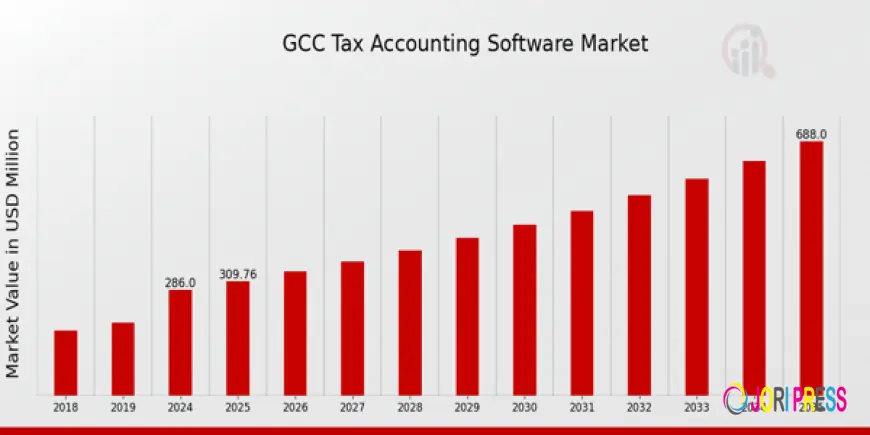How to Choose the Right GCC Accounting Firm for Your Business

The accounting landscape in the Gulf Cooperation Council (GCC) region is undergoing a major transformation. Rapid economic diversification, evolving tax frameworks, technological advancements, and the push toward global compliance standards are reshaping the way businesses in the region manage their financial operations.
As we move through 2025 and into the years ahead, GCC accounting is no longer just about crunching numbers. It's about strategic reporting, regulatory alignment, digital adoption, and long-term business resilience. Whether you’re a small business owner, CFO, or finance consultant, understanding these changes is essential to staying ahead.
Let’s explore the key GCC accounting trends shaping the future—and what your business should be doing to prepare.
1. Continued Adoption of International Financial Reporting Standards (IFRS)
Most GCC countries have adopted IFRS as their primary financial reporting framework. This trend is expected to strengthen as regional businesses attract more international investment and aim to improve transparency.
For example:
-
The UAE and Saudi Arabia have fully adopted IFRS.
-
Bahrain and Oman are aligning their national standards with IFRS guidelines.
-
Qatar and Kuwait are also pushing for wider adoption across sectors.
What this means for businesses:
Companies need to ensure their finance teams or outsourced partners are IFRS-compliant. This involves adjusting how assets, liabilities, and income are reported—especially for companies looking to go public or attract foreign capital.
2. Stricter Tax Compliance and VAT Integration
With the introduction of Value Added Tax (VAT) in countries like the UAE, Saudi Arabia, Bahrain, and Oman, taxation has become a key part of GCC accounting practices. This trend will likely expand to other GCC countries, with more robust tax auditing and compliance enforcement in 2025 and beyond.
Key focus areas:
-
Accurate VAT filings
-
Real-time tax reporting systems
-
Cross-border tax implications
-
Anti-money laundering (AML) and economic substance regulations (ESR)
Business Impact:
Businesses must now treat tax compliance as an integral part of their accounting processes—not just a year-end task. Failure to comply can result in hefty fines, legal action, and reputational damage.
3. Digital Transformation and Cloud Accounting
The shift to cloud-based accounting systems is accelerating across the GCC. From small startups to large corporations, companies are embracing platforms like Xero, QuickBooks Online, Zoho Books, and Oracle NetSuite.
Why it matters:
-
Enables real-time financial reporting
-
Improves collaboration between teams and external accountants
-
Reduces human error through automation
-
Enhances security and data backup protocols
Cloud accounting also facilitates better decision-making by giving business owners instant access to cash flow reports, P&L statements, and tax data.
4. AI and Automation in Accounting Workflows
Artificial intelligence (AI) and robotic process automation (RPA) are redefining traditional accounting roles across the GCC. Invoices are being scanned and categorized automatically. Bank reconciliations and expense reports are being handled by AI algorithms. This reduces the need for repetitive manual tasks and frees up finance professionals for higher-value strategic analysis.
Key automation trends:
-
Automated invoice processing
-
Real-time bank feed integrations
-
Predictive cash flow forecasting
-
AI-powered anomaly detection
What to watch:
Leading GCC firms are now hiring accountants who are tech-savvy and comfortable working with automated tools—not just spreadsheets.
5. Growth in Outsourced Accounting Services
As the cost of hiring in-house finance teams rises, many businesses are shifting toward outsourcing GCC accounting services. This approach is particularly popular with:
-
Startups and SMEs
-
Foreign businesses setting up in the region
-
Companies undergoing digital transformation
Outsourcing firms in the GCC provide bookkeeping, tax compliance, payroll, financial analysis, and audit support—often bundled with cloud accounting platforms.
Benefits:
-
Reduced overhead costs
-
Access to experienced, IFRS-trained professionals
-
Scalable services as the business grows
-
Improved compliance and accuracy
This trend is expected to grow as businesses look for flexible, cost-effective accounting solutions.
6. ESG Reporting and Sustainability Accounting
Environmental, Social, and Governance (ESG) reporting is gaining traction globally—and the GCC is no exception. With increasing pressure from international investors and regulators, businesses in the region are expected to start incorporating non-financial disclosures into their accounting systems.
What’s changing:
-
Companies may need to report on carbon emissions, energy usage, and supply chain ethics
-
ESG metrics are being integrated with financial KPIs
-
National governments (e.g., UAE’s Green Agenda 2030) are supporting sustainability through policy and funding
GCC accounting professionals will soon need to understand ESG frameworks such as GRI, SASB, and TCFD to meet upcoming regulations and investor expectations.
7. Rise of FinTech and API Integrations
Accounting is no longer a standalone function. Thanks to FinTech innovations, businesses can now link their accounting systems directly to payment platforms, CRMs, inventory systems, and banks through API integrations.
This level of interconnectivity improves:
-
Cash flow tracking
-
Automated tax calculations
-
Inventory and cost management
-
Customer billing and collections
GCC-based FinTech startups are increasingly developing tools tailored for local markets, including Arabic-language interfaces, VAT support, and regional compliance tools.
8. Talent Shortage and Upskilling Demand
The rapid digital shift has created a skills gap in the GCC accounting sector. Companies are finding it hard to hire accountants who are both tech-literate and fully trained in IFRS, VAT, and compliance regulations.
To address this, we’re seeing:
-
More demand for accounting certifications (e.g., CPA, ACCA, CMA)
-
Training programs focused on automation tools
-
Government-supported digital finance education initiatives
Businesses must invest in continuous learning or partner with accounting firms that provide full-spectrum, up-to-date expertise.
Final Thoughts: Adapting to the New Era of GCC Accounting
The future of GCC accounting is fast, digital, and compliance-driven. Businesses that adapt to these changes will find themselves better equipped to scale, stay competitive, and avoid financial risks.
Here’s what you can do today:
-
Review your accounting software and consider upgrading to a cloud-based solution
-
Train your team (or hire professionals) with IFRS and VAT expertise
-
Consider outsourcing for scalable, cost-effective accounting services
-
Keep an eye on ESG and tax reporting changes in your country
What's Your Reaction?
 Like
0
Like
0
 Dislike
0
Dislike
0
 Love
0
Love
0
 Funny
0
Funny
0
 Angry
0
Angry
0
 Sad
0
Sad
0
 Wow
0
Wow
0

















































